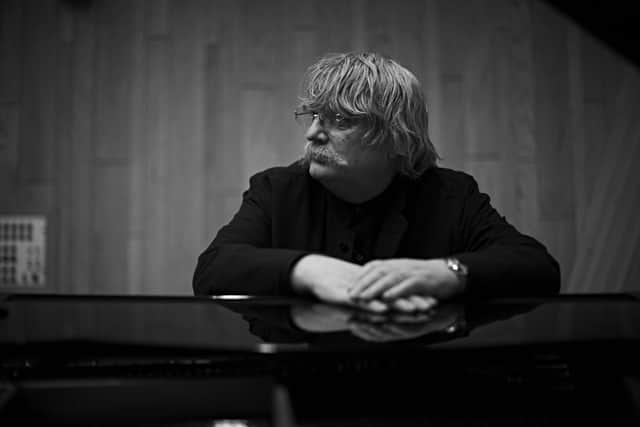Sir Karl Jenkins at 80: ‘I’ve often described myself as a musical tourist’
Last year, Sir Karl Jenkins attended the coronation of King Charles. Like other composers seated in Westminster Abbey that day, his music – a typically lavish Welsh folk song arrangement Tros y Garreg, drawn from his harp concerto Over the Stone – formed part of the ceremonial playlist. What he didn’t expect were the five million social media hits resulting from a whimsical post by a television viewer who reckoned the 80-year-old, with his tousled hair and bushy moustache, wasn’t all he claimed to be.
“I was on camera for some time, next to Andrew Lloyd Webber,” he recalls. “Some individual snapped me and put it on TikTok asking ‘Is this Meghan Markle in disguise?’ Then it all went bizarre. I ended up on CNN and Sky News, and strangers started buying me drinks and asking for selfies. Plenty good publicity, I guess.”
Advertisement
Hide AdAdvertisement
Hide AdNot that Jenkins needs the publicity. Soon to appear in Glasgow conducting the Scottish leg of his 80th Birthday Concert Tour, he’s one of the world’s most performed composers, having clocked up 17 gold and platinum albums and over one billion streams, he recently signed a lifetime recording contract with Decca, and his most popular work, The Armed Man: A Mass for Peace, has had over 3,000 performances worldwide since its momentous millennium premiere.
Yet Jenkins is remarkably sanguine about his worth, expressing in dulcet Gower Peninsula tones that life has been good to him despite being a journey of unplanned highways and byways. “I’ve often described myself as a musical tourist, embracing all kinds of forms, structures and styles,” he says.
It all began with a standard Welsh grammar school education that led to acceptances at Cardiff University, then the Royal Academy of Music. But Jenkins’ instinctive resistance to classical modernism of the time – the austere European serialism proselytised by the likes of his Cardiff composition professor Alun Hoddinott – ignited a minor revolt.
“In my teenage years jazz appeared from nowhere and I was very taken with that, whereas encounters into Stockhausen or serial composers didn’t thrill me too much. So I had this duality at university, attending lectures by day, but playing jazz at night with a couple of students who had the same bent. I couldn’t have done what I’ve eventually done without having a classical academic background, but branching out into other areas gave me so much valuable musical information, a creative melting pot to draw from when I needed it.”
That included initial success in the early 1970s, playing keyboards and saxophone with jazz-fusion bands Nucleus and Soft Machine, before establishing a highly successful business partnership with fellow Soft Machinist Mike Ratledge, writing music for commercials. High-end clients included Boots, Levi’s and Delta Airlines, the latter spawning what was to become one of Jenkins most iconic classical works.


“Delta described what they wanted as indigenous music from various cultures around the world,” he recalls. “I couldn’t find suitable texts in ancient or foreign tongues, so just made up words, as jazz singers do when improvising.” The end result, a beguiling synthesis of tonal simplicity and exotic charm, became the instant global hit Adiemus. “It was all things to all people,” he recalls.
Adiemus features in the tour programme alongside Palladio (which started life as the famous 1993 De Beers advert), as does The Armed Man, with its compelling primal rhythms and multi-layered ethnicity, which Jenkins maintains “changed my life for good”. He’s remained the highest ranking living composer in Classic FM’s Hall of Fame ever since.
Advertisement
Hide AdAdvertisement
Hide AdThe forthcoming Glasgow concert, featuring the SCO and the RSNO Chorus, ends with One World, a more recent composition that took root during lockdown. Commissioned by the World Orchestra and Choir for Peace and premiered last year in Linz, Jenkins calls it a cry for dialogue, peace and reconciliation.
Can a composer really make such a difference? “When I wrote The Armed Man the brief was to hope for a brighter future. That day didn’t come. Even Britten’s hard-hitting War Requiem didn’t change things in 1962. I don’t think any musician can.” When one of the planet’s most popular composers says so, who’s to argue?
Karl Jenkins conducts his 80th Birthday Concert at Glasgow Royal Concert Hall on 17 March, see www.glasgowlife.org.uk